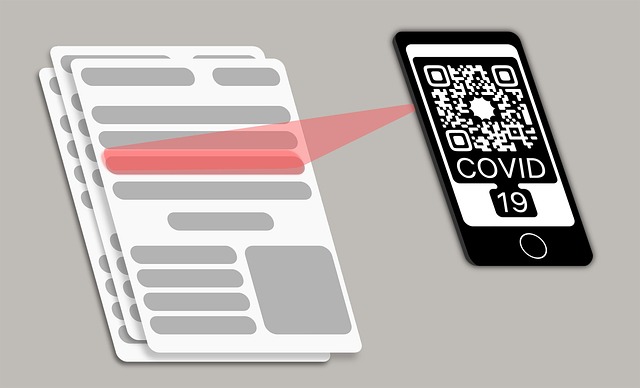Integrating FAQ JSON-LD Code improves user experience and SEO by enhancing search engine comprehension of FAQs, leading to higher rankings. This structured data complements Accordion Schema and FAQ Snippet Optimization, boosting visibility on SERPs, reducing bounce rates, and increasing engagement through interactive FAQ displays. Monitor CTRs, time spent on page, and bounce rates to gauge success and regularly update the code for optimal performance.
In today’s digital landscape, enhancing user experience is paramount. One effective strategy to achieve this is implementing the FAQPage schema, which optimizes content for rich FAQ results on search engines. By integrating FAQ JSON-LD code, websites can boost engagement and capture more real estate in SERPs. This article delves into the benefits of FAQPage schema, provides step-by-step guidance on coding implementation, and offers strategies to optimize content, enhance user interaction, and improve search visibility through frequently asked questions.
- Understanding FAQPage Schema Benefits
- Implementing FAQ JSON-LD Code
- Optimizing Content for Rich FAQ Results
- Enhancing User Engagement with FAQs
- Improving SERP Real Estate for Frequently Asked Questions
- Measuring Success and Iterating FAQ Strategy
Understanding FAQPage Schema Benefits

Adding the FAQPage schema to your website’s content brings a multitude of benefits designed to enhance user experience and boost search engine rankings. This JSON-LD code provides search engines with structured data, allowing them to better understand the context and content of frequently asked questions on your site. By implementing the FAQPage schema, you’re not just improving accessibility for users; you’re also signaling to search algorithms that your site is a valuable resource for quick answers and detailed information.
This schema goes hand in hand with Accordion Schema SEO and FAQ Snippet Optimization techniques, offering a comprehensive strategy to capture more real estate on SERPs (Search Engine Results Pages). When properly integrated, the FAQPage schema can lead to enhanced user engagement as visitors are presented with clear, concise answers to their queries directly within search results. Moreover, it simplifies the process of “How to Add FAQ Schema” by providing a straightforward method for webmasters to implement and ensure their site’s content is optimized for both users and search engines.
Implementing FAQ JSON-LD Code

Implementing FAQ JSON-LD Code is a straightforward yet powerful step towards enhancing your website’s search engine optimization (SEO) strategy. By integrating the FAQ JSON-LD schema into your content, you provide search engines with valuable context and structure around frequently asked questions. This simple coding technique allows search algorithms to recognize and display your site’s FAQs in rich, interactive results—a significant boost for user engagement and visibility on search engine results pages (SERPs).
The process involves adding specific JSON-LD code snippets within the section of your HTML document. This code delineates the questions and answers, often presented in an accordion format, enabling search engines to understand the FAQ layout. With this structured data, search engines can deliver enhanced, user-friendly results, encouraging clicks and reducing bounce rates. Additionally, it contributes to better indexing, making your FAQs more discoverable for relevant queries.
Optimizing Content for Rich FAQ Results

To optimize content for Rich FAQ Results, incorporating the FAQ JSON-LD Code is essential. This schema, specifically the FAQ Page Type, signals to search engines that your content includes frequently asked questions and their answers, enhancing its relevance. By adding this structured data, you enable search engines to display your content in a rich, interactive format, improving user engagement on SERPs.
The process of How to Add FAQ Schema involves integrating the JSON-LD code within your web page’s HTML. This code provides details about each question and its corresponding answer, making it easier for search algorithms to parse and understand. Not only does this improve visibility in search results, but it also ensures that users can quickly find answers without scrolling through lengthy pages, thereby boosting overall user experience.
Enhancing User Engagement with FAQs

Adding a FAQ JSON-LD Code using the Schema FAQPage Type is a powerful strategy to boost user engagement with your content. By implementing this schema, search engines can better understand that your webpage contains frequently asked questions and their answers, prompting them to display rich, interactive FAQ results in search engine result pages (SERPs). This not only enhances the user experience but also increases the chances of capturing a larger share of valuable SERP real estate.
Using an Accordion Schema SEO approach within your FAQs allows users to easily navigate through a structured list of questions and answers, making it more likely they’ll find the information they seek quickly. Consequently, lower bounce rates and longer session durations can be expected, signaling to search engines that your content is valuable and relevant. Furthermore, incorporating this schema helps in demonstrating to users that you’ve thoughtfully organized your content, fostering a positive perception of your brand or website.
Improving SERP Real Estate for Frequently Asked Questions

By integrating the FAQPage schema into your website’s content, you unlock significant opportunities to enhance your Search Engine Results Page (SERP) real estate for Frequently Asked Questions. This structured data allows search engines to understand and display your FAQs in a rich, interactive format, significantly improving user engagement. In today’s digital landscape, where users often turn to search engines for quick answers, optimizing for FAQ Snippet Optimization is crucial. The FAQ JSON-LD Code provides a clear structure for search engines to parse and interpret your FAQ data, enabling them to generate Rich FAQ Results that include direct answers, question summaries, and even accordion-style expansions for deeper content.
This schema goes beyond simple keyword optimization; it offers a more dynamic and user-friendly experience by presenting FAQs in a way that mimics natural conversation. For instance, using Accordion Schema SEO, users can easily toggle through questions, making navigation intuitive and efficient. By leveraging these structured data techniques, you not only attract more clicks from users seeking answers but also signal to search engines the comprehensive nature of your content, potentially leading to higher rankings and increased visibility in SERPs.
Measuring Success and Iterating FAQ Strategy

To measure the success of your FAQPage schema implementation, track key performance indicators (KPIs) such as click-through rates (CTRs) from rich FAQ results in search engine results pages (SERPs), and user satisfaction scores based on engagement metrics like time spent on page and bounce rates. By analyzing these data points, you can assess the effectiveness of your schema markup and identify areas for improvement.
Iterating your FAQ strategy involves regularly reviewing and updating your FAQ JSON-LD code to reflect changes in user queries and website content. Stay updated with search engine algorithm updates and industry trends to ensure your schema remains optimized for rich FAQ results. Continuously gathering user feedback and A/B testing different FAQ structures can also help refine your approach, ultimately enhancing user engagement and maximizing the value of your schema implementation.
